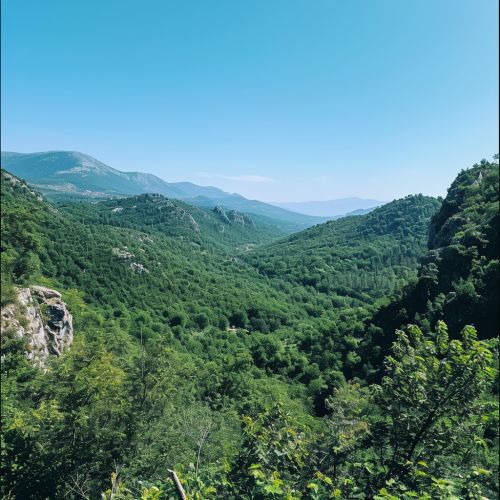Balkan countries
Geography
The Balkan Peninsula is a region located in southeastern Europe, characterized by its mountainous landscape. The term "Balkan" comes from a Turkish word meaning "chain of wooded mountains". The peninsula is bordered by the Adriatic Sea to the west, the Mediterranean and Aegean Sea to the south, and the Black Sea to the east. Its northern boundary is often given as the Danube, Sava, and Kupa Rivers.

Countries
The Balkan region includes several countries, each with its own unique history, culture, and political landscape. These countries include:
- Albania
- Bosnia and Herzegovina
- Bulgaria
- Croatia
- Greece
- Kosovo
- Montenegro
- North Macedonia
- Romania
- Serbia
- Slovenia
- Turkey
It should be noted that not all of these countries are entirely within the geographical boundaries of the Balkan Peninsula. For example, Slovenia, Croatia, and Turkey have significant portions of their land outside the peninsula.
History
The history of the Balkans is characterized by its geopolitical and cultural diversity. The region has been the frontier of Europe for centuries, and it has been influenced by a multitude of empires and civilizations, including the Greeks, Romans, Byzantines, Ottomans, and Austro-Hungarians.
In the 20th century, the Balkans were the site of several major world events, including the assassination of Archduke Franz Ferdinand of Austria in Sarajevo, which sparked World War I, and the Yugoslav Wars in the 1990s, which marked the end of Yugoslavia and resulted in several new states.
Culture
The culture of the Balkans is as diverse as its history. It is a melting pot of various influences, from the ancient Greeks and Romans to the Byzantine and Ottoman empires. This rich cultural heritage is reflected in the region's architecture, literature, music, dance, and cuisine.
The Balkans are also home to a diverse range of religious beliefs, with a significant presence of Orthodox Christianity, Islam, and Catholicism. This religious diversity has played a significant role in shaping the region's cultural and political landscape.
Economy
The economies of the Balkan countries vary significantly, but they are all classified as high-income or upper-middle-income economies by the World Bank. Some of the region's largest industries include agriculture, mining, and manufacturing. In recent years, there has been a significant growth in the service sector, particularly in tourism.
Despite these advancements, the Balkan region still faces several economic challenges, including high unemployment rates and political instability. However, there are also opportunities for growth and development, particularly in the areas of technology and renewable energy.
